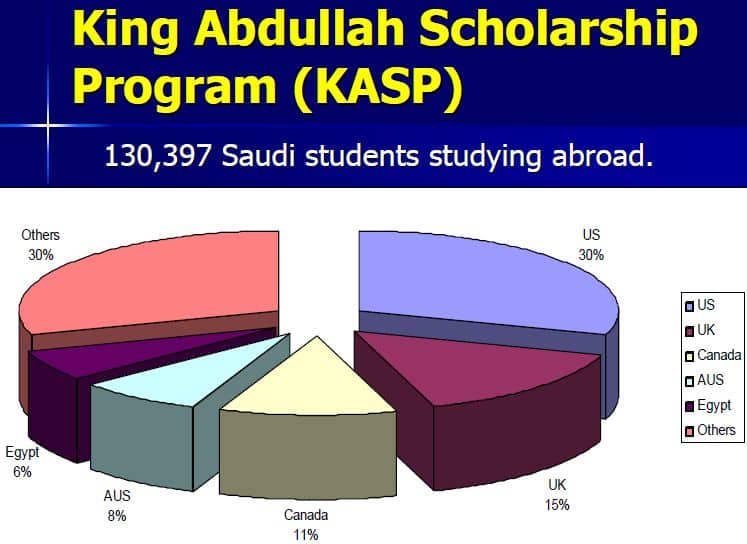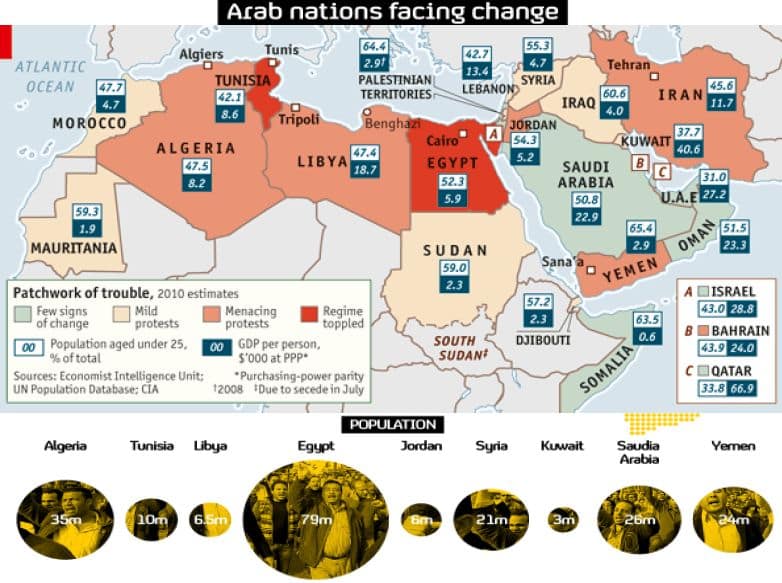Trends shaping higher education in the Middle East and North Africa
Today we present our exclusive interview with Dr Derar Bal'awi, Regional Director for the MENA Region at International Group for Educational Consultancy (IGEC) based in Saudi Arabia. We discuss the popular KASP scholarship programme, as well as the KASPTT, which focuses on the vocational sector. In addition, Dr Bal'awi shares his insights on the Arab Spring's impact on student mobility, as well as the importance of online learning in the Middle East and North Africa. Watch our video and continue reading below.
King Abdullah Scholarship Program (KASP)
Saudi Arabia’s King Abdullah Scholarship Program (KASP) will run through 2020, sources have confirmed. The Saudi government invests a hefty 9 billion SAR (approximately 1.782 billion EUR) in the programme each year, and this provides full funding for nearly 130,400 students – for bachelors, masters and doctorate programmes abroad. At present, the undergraduate fields of study are limited to medicine, medical science and health sciences; however, more options exist for graduate studies. Dr Bal'awi discusses the criteria the Ministry of Higher Education (MOHE) sets for institutions looking to qualify to receive Saudi students, such as:
- quality of education
- professional, national accreditation
- ratio between local vs. international students
- admission requirements
- personal relationships
Dr Bal'awi highlights the importance of this last point:
"In addition to the criteria, the educational provider is recommended to come to Saudi Arabia and meet with the MOHE because this will actually enhance the process of accreditation."
King Abdullah Scholarship Program for Technical Trainers (KASPTT)
In addition to the MOHE supervised scholarships, the Technical and Vocational Training Corporation (TVTC) administers KASPTT. This programme targets graduates from colleges of technology and higher technical institutions. When speaking about the KASPTT conditions, Dr Bal'awi explains:
"TVTC gives non-engineering students two years to complete their bachelors degree: it's a 2+2 programme. However, engineering students are given 2.5 years to complete their bachelors degree, so it's a 2+2.5 year programme."
The fields of study/training are:
- Mechanics
- Electrical Technology
- Computer Technology
- Civil and Architectural Technology
- Chemical Technology
- Environmental Technology
- Management Technology
- Food Technology
- Travel & Tourism Technology
- Ornaments/Jewellery design and manufacture
Destinations and student mobility
In terms of destinations for Saudi students, the reasons behind the students' preferences for the US, Canada, the UK and Australia include:
- Academic excellence
- Variety of educational opportunities
- Cutting-edge technology
- Security
- Campus life experience
- Strong ties with Saudi Arabia
The spread of destinations is illustrated below:


Online learning opportunities
Finally, when speaking about the rise of online learning, Dr Bal'awi enthuses, "the ease and convenience online learning offers... is pushing governments to accredit online learning education," citing examples from Saudi Arabia and Jordan. He concludes:
"I recommend all universities to also promote their online courses in the Middle East and North Africa region."
















